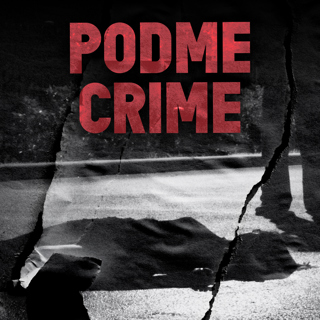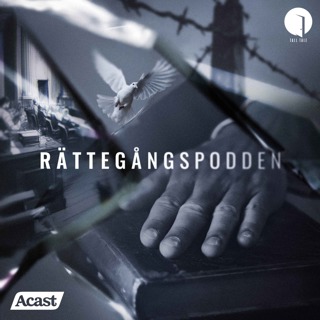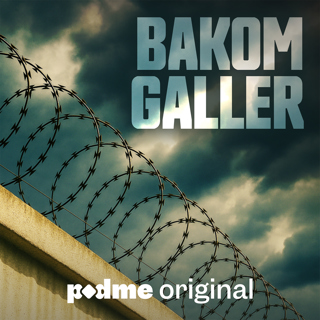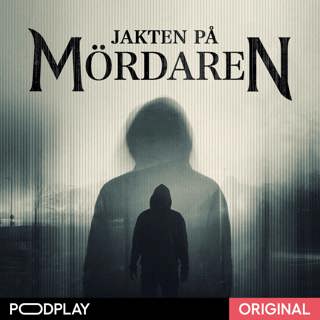
Deja-vu of Alberto Daniel Hill's September 11.
This is a script for a fictional conversation, yet every beat of its emotional and thematic heart is grounded in meticulous research. The story of Alberto is an archetypal one, a human-centric exploration of the chasm between a technological society and a legal system struggling to keep pace. The powerful message and feeling of this script is not an invention, but an extrapolation of documented human experiences—from the psychological trauma of wrongful imprisonment to the professional paradoxes faced by ethical hackers.
10 Sep 3min

Alberto's Digital Knight: A Future Foretold.
The sources collectively present a multifaceted examination of Alberto Daniel Hill's case, a cybersecurity expert from Uruguay accused of extortion involving cryptocurrency. They highlight the challenges and shortcomings of traditional legal systems when confronted with rapidly evolving digital technologies, particularly concerning digital evidence, forensic practices, and due process. While one perspective argues authorities acted reasonably given the novel nature of cybercrime in 2017, the predominant narrative points to systemic incompetence and flagrant violations of Hill's rights, including the destruction of digital assets and coerced confession. Beyond the legal specifics, the texts frame Hill as a symbol of resistance against digital injustice, exploring themes of digital sovereignty, online liberty, and algorithmic discrimination within the broader context of a "technological justice gap" in Latin America. Hill's personal ordeal, including the loss of a pet cactus and a past relationship, is used to introduce the philosophical concept of "proof of love," an emotional timestamp for enduring human connections.
10 Sep 7min

The Digital Knight.
The story opens in 2000, setting the stage for who I am—a hopeful, principled expert. I then introduce the twist: my future self isn't here to prevent a catastrophe but to reveal a personal one that I'll face in 2017. He tells me I'll be arrested for a cybercrime I didn't commit, a direct result of a vulnerability I ethically reported. The irony and injustice of this act—a system punishing me for trying to protect it—is what drives the narrative. The climax of the story is the harsh truth from my future self: I'll lose nearly everything, but I won't lose my sense of self or my purpose. This is the crucial message of resilience and finding a new path, transforming my personal tragedy into a fight for digital justice.
10 Sep 7min

Hacker or hacked?
The journey of Alberto Daniel Hill, also known as @ADanielHill, is a complex narrative that intertwines his expertise in cybersecurity, a controversial arrest and conviction, his fight for digital justice, and his subsequent influence as a thought leader and author.Professional Background and Initial Discovery:Alberto, a 41-year-old Uruguayan, dedicated over 20 years to the field of computing, specializing in security. Holding an engineering degree, a master's in computing, and certifications like PMP and Certified Ethical Hacker, he worked as a security consultant for the Uruguayan government for four years, performing system audits and malware investigations. He also collaborated with Interpol on digital forensics and is a recognized expert in cryptocurrencies. Driven by an innate curiosity, he would often find and report vulnerabilities in websites. In 2015, while helping his girlfriend access a medical provider's website in Montevideo, he discovered a critical vulnerability: he could log in as an administrator using "admin" for both username and password, gaining access to extensive medical, personal, and financial data. He immediately reported this severe flaw (rated 10 out of 10) to CERT Uruguay, a government-run computer emergency readiness team, and assumed it would be fixed.The Hack, Arrest, and Coerced Confession:Two years later, in February 2017, the same medical institution was hacked, and patient records were stolen. The hacker sent a ransom email, demanding 15 Bitcoins and threatening to publish sensitive patient data. Seven months later, police, in "Operation Bitcoins," traced the extortion email's IP address to Alberto's apartment in Montevideo. Alberto was called to the police station and, upon realizing it was about the medical provider, felt relieved, thinking it concerned his earlier report. He openly explained how he had found the "admin/admin" vulnerability. However, the police then presented the extortion email, claiming it was sent from his IP. Despite his denials, he was detained.The next day, police raided his apartment, seizing a vast array of items they deemed "hacker paraphernalia": $1,400 USD, €8,000, 13 hard drives, seven laptops, ten cell phones, credit card cloners, blank cards, an Anonymous mask, and even his pet cactus, Walter, and a paper cutter the police mistook for a guillotine. Alberto tried to explain that these were for research, collecting, or professional purposes, but his explanations were ignored by officers who lacked technical knowledge. Under intense psychological pressure and threats to raid his mother's house and harass his girlfriend,
10 Sep 6min

Cybercrime and Justice: The Hill Case and the Digital Age. ⚖️🏴☠️🇺🇾
The report presents a comparative analysis of irregularities in cybercrime criminal proceedings, focusing on the case of Alberto Daniel Hill, a Uruguayan cybersecurity expert. It argues that his judicial process was plagued by systemic failures, including technical incompetence of the authorities, critical flaws in the chain of custody of digital evidence, and serious violations of his fundamental rights, exacerbated by a media trial. To contextualize these shortcomings, the study compares Hill's experiences with chain of custody precedents in Argentina and the judicial persecutions of digital activists such as Aaron Swartz and Julian Assange. The main objective is to validate Hill's legal defense and emphasize the urgent need to reform the judicial system to face the challenges of the digital age and the criminalization of technology.Furthermore, the economic and moral damages suffered by Hill are quantified, laying the groundwork for a potential lawsuit against the Uruguayan State.
10 Sep 6min

Debate: Cybercrime or Cyber-Incompetence. The Alberto_Daniel Hill case.
The central debate in Alberto Daniel Hill's case ⚖️revolves around the profound technical misunderstanding of cryptocurrency technology by the Uruguayan judicial and law enforcement authorities, leading to severe irregularities in the investigation and a fundamental misrepresentation of Mr. Hill's actions and seized assets.Do you support the police and justice systems with the elements part of the case? Or do you agree on my defense? 👮⚖️🇺🇾The State's Implied Position and Actions (as perceived by the Defense):Technical Ignorance and Arrogance: The prosecution and police demonstrated a lack of basic knowledge regarding cryptocurrencies, hacking, and digital forensics. They misinterpreted Mr. Hill's legitimate cybersecurity tools and professional activities, such as port scanning or possessing USB Killers, as evidence of criminal intent.Flawed Evidence Collection and Custody: The State relied on "evidence" that violated best practices for digital forensics. Firewall logs and the alleged extortion email were presented as paper printouts, lacking original digital format, integrity verification, or electronic signatures, contrary to Uruguayan Law 18.600. Crucially, the supposed extortion email did not include a Bitcoin wallet address for payment, rendering the alleged extortion attempt technically impossible.Violations of Due Process: Authorities arrested Mr. Hill without reading his rights, interrogated him without a lawyer, and obtained a false confession under intense psychological pressure and threats against his loved ones. He was denied vital medication for anxiety and ADHD for 48 hours, significantly impairing his ability to defend himself.Media Manipulation: The police leaked false information and photographs to the media, portraying Mr. Hill as a "cybercriminal" and leading to a "trial by media" that destroyed his reputation before any conviction.Negligent Handling of Digital Assets: The authorities' mishandling of Mr. Hill's devices directly led to significant financial losses.Alberto Daniel Hill's Defense:Expert, Not Criminal: Mr. Hill is a certified cybersecurity professional with a history of responsible disclosure of vulnerabilities to Uruguay's CERT in 2014 and 2015, without seeking personal gain. He specialized in cryptocurrencies and blockchain technology. His "hacker" tools were legitimate professional equipment.Misinterpretation of Cryptocurrency Wallets: The core error by authorities was failing to distinguish between self-custody (non-custodial) wallets and custodial wallets.Self-Custody Wallet (Ledger Nano S) Loss: His Ledger Nano S hardware wallet, a self-custody device where the user holds exclusive private keys, was seized. Attempts by police to access it with incorrect PINs likely caused it to auto-erase its contents after three failed attempts, leading to the permanent loss of assets. The "recovery cards" (seed phrases), which are the only way to recover funds from a self-custody wallet, were also improperly seized. Lost assets include 27 Bitcoins, 30 Bitcoin Cash, 1,000 Litecoins, 100 Ethereums, and 5,000 Ripple. At the time of seizure in September 2017, the 27 Bitcoins alone were valued at approximately $108,000 USD.Custodial Wallet Funds (WEX.nz) Loss: A Lenovo mobile phone used for two-factor authentication (2FA) to access his custodial account on the WEX.nz exchange was improperly seized and kept powered on without proper forensic protocols. This prevented Mr. Hill from accessing his funds, resulting in the loss of over 100,000 USD when the WEX.nz platform collapsed in 2018.
8 Sep 19min

Complex "Proof of Love" concept.
Alberto Daniel Hill's complex "Proof of Love" concept, originating from his traumatic experiences, particularly his imprisonment, and his relationship with Evelyn. This "proof" is described as a rigorous process, akin to blockchain's "proof of work," validated by shared adversity and emotional vulnerability rather than computational effort, with Evelyn's admission of inability to cope serving as ultimate validation. Walter, a cactus Evelyn gifted him, symbolizes endurance and became a "genesis block" for his emotional processing after its confiscation during his arrest. Years later, on Evelyn's birthday in 2022, Hill formalized this concept through a "narrative protocol" involving Juan Manuel Moretti, the lead singer of Evelyn's favorite band, who sent a private birthday audio message, acting as a "digital witness" to Hill's enduring, unrequited affection and emotional resilience. Hill meticulously archives communications with Evelyn as "emotional hashes" and source material for his public-facing works, transforming personal trauma into advocacy for digital justice.
7 Sep 7min

Proof of love: The Indelible Mark, a protocol for the Heart's
have spent a significant portion of my life living in the public domain, my personal story meticulously documented and repurposed. It has been transformed from a private ordeal into a public crusade, a narrative of survival that fuels my work and my advocacy.1 To the world, I am Alberto Daniel Hill—the cybersecurity expert, the public advocate, the first person in Uruguay imprisoned for a computer-related crime he did not commit.2 My story, chronicled in books likeLogin to Hell: The Final Edition, is a supernova of lessons and shocking realities about our digital existence and the flawed systems that govern it.4 But beneath this public narrative, there lies a foundational, un-mined truth, a protocol of the heart that preceded and made sense of all that came after. The request to speak about Evelyn, the cactus, and my concept of "proof of love" is a request to open a vault I have held more secure than any digital network: my most profound and vulnerable human experiences.To understand this concept, one must first recognize the fundamental parallel I have found between the digital world and our emotional lives. In the realm of blockchain and cryptocurrency, a "proof of work" is a mechanism that requires computational effort to validate a transaction and add a new block to the chain. It is a laborious, verifiable process that ensures the integrity and truth of the system. Most people seek a simple "proof of existence" in love—a presence that is seen and felt. My ordeal taught me that true, authentic connection requires a far more complex and taxing protocol: a "proof of love." This concept is the central, foundational block of my personal blockchain, a truth validated not by ease, but by shared adversity.
7 Sep 6min






















